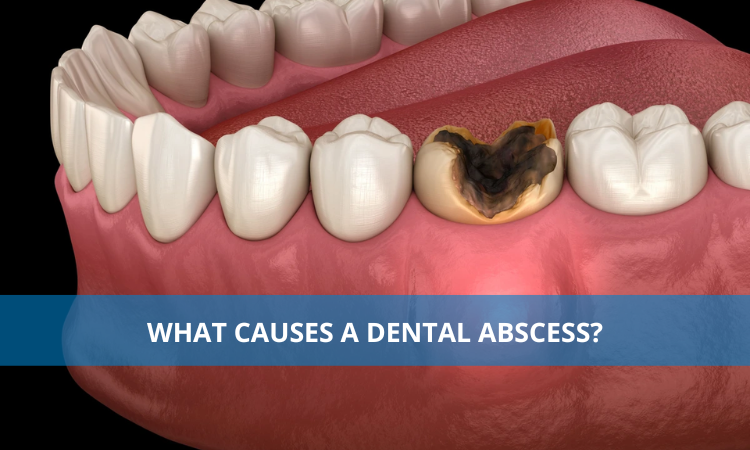
Abscesses don't go away on their own, so getting medical attention as soon as possible is critical. They can occasionally cause you to become ill by spreading to other areas of the body.
A dental abscess is a build-up of pus that may develop inside the teeth, in the gums, or in the bone that supports the teeth. A bacterial infection is to blame. Dental abscesses can occasionally, but not always, be painful. In either scenario, you should have a dentist take a look at it because abscesses seldom go away on their own and can occasionally spread to other regions of the body, making you sick.
Why do dental abscesses develop?
If you don't maintain good oral hygiene, the acids that the bacteria in plaque make can harm your teeth and gums, resulting in tooth decay or gum disease. You are more likely to get a tooth abscess if you have one of the following conditions:
· Teeth that have decayed or been damaged (by trauma, breakage, or chipping). Dental decay can cause an abscess if left untreated.
· Deep pockets within the gums and gum infections can contribute to abscess formation.
· Infections following dental procedures such extractions, implants, and root canals.
· Pericoronitis is the medical term for an infection around the inflammatory soft tissue around the emerging tooth.
· Brushing your teeth forcefully.
How does it get treated?
Clearing out the infection and reducing discomfort are the main goals of treatment for an abscessed tooth. Depending on your symptoms, a dental X-ray can be the first step your dentist takes. They can use this to determine if the virus has migrated to other regions.
Treatment options depend on the kind and severity of your abscess and include the following:
Abdominal abscess drainage:
Your dentist will make a tiny cut to remove the pus from the abscess. They will then use a saline solution to clean the region.
Root canal therapy:
To drain the abscess and remove any diseased pulp, a root canal includes drilling into the damaged tooth. The pulp chamber, which contains the pulp, and the root canal, will then be filled and sealed by your dentist. To reinforce your tooth, they could additionally cover it with a crown.
Extraction of teeth:
Before draining the abscess, your dentist could extract your tooth if it is extremely damaged. If the tooth cannot be salvaged, your dentist may extract it and then drain the abscess.
Antibiotics:
Your dentist could suggest oral medicines to help clear the infection if it has spread outside of the abscessed area or if you have a compromised immune system.
Foreign object removal:
Your dentist will remove the foreign object if it is what is causing the abscess in your gums. They'll end by using a saline solution to clean the site.
Any abscessed tooth needs to be treated by a dentist. Even if it has already ruptured, you should still have your doctor check and disinfect the region to prevent the infection from spreading.

Dr Amna Bilal
The author is a contributing writer at Dental News Pakistan and can be reached at amna0795@yahoo.com

